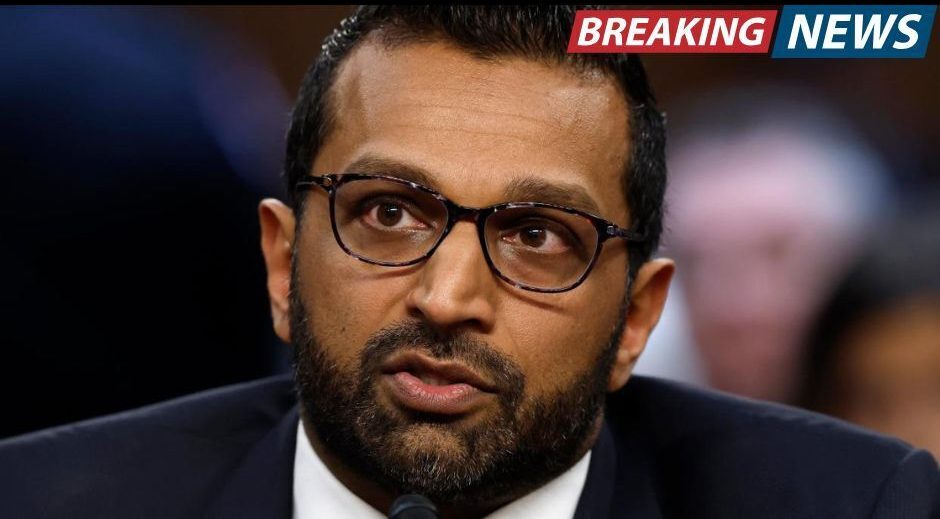A Defense Intelligence Agency (DIA) employee has been arrested on charges of attempting to leak highly classified information to a foreign government in what federal authorities are calling one of the most serious insider threats in recent years.
Nathan Vilas Laatsch, 28, a civilian IT specialist employed by the DIA since 2019, was taken into custody in Northern Virginia on Thursday following a months-long counterintelligence operation. According to court filings, Laatsch held a top-secret security clearance and was assigned to the agency’s Insider Threat Division—an office specifically tasked with identifying and mitigating risks like the one he allegedly posed.
An Alarming Discovery
The investigation began earlier this year after federal agents received a tip that an individual was seeking to pass U.S. intelligence materials to a foreign power. Laatsch was identified as the suspect after investigators traced communications in which he claimed he was willing to betray his country due to personal dissatisfaction with the current political leadership.
In the messages, Laatsch reportedly wrote that he did not “align with the values of the current administration” and was therefore willing to “share restricted intelligence” that he had access to in his role at the DIA.
He offered to provide “a broad sample of classified materials,” including finalized intelligence assessments, raw intelligence data, and other documents containing sensitive national security information.
FBI Sets a Trap
Working with undercover agents, the FBI launched a sting operation in which Laatsch was led to believe he was in contact with an official representative of a foreign government described in court papers only as “friendly to the United States.”
Over the course of several weeks, Laatsch allegedly transferred classified material to the agent, using handwritten notes and printed documents. According to the complaint, he transcribed sensitive information at his government-issued desk and smuggled it out of DIA facilities, at times concealing it in personal items.
On May 1, Laatsch traveled to a prearranged drop site in a public park, where he left behind a thumb drive wrapped in a plastic bag. Inside was a digital note to his foreign contacts and multiple classified files, several of which were marked “Top Secret.”
According to prosecutors, Laatsch claimed he included a “substantial sample” to demonstrate the kind of intelligence he could deliver on an ongoing basis. He then followed up with a request: he wanted either citizenship in the receiving country or compensation for further cooperation.
Motivation: Political Discontent and Disillusionment
While Laatsch did not ask for a large sum of money, authorities say he repeatedly voiced dissatisfaction with the political climate in the U.S., stating he had little hope for meaningful change. He expressed interest in living abroad and hinted at a long-term exit strategy from the United States, suggesting he saw his actions as the beginning of a new life.
Despite his motivations, investigators noted that Laatsch never indicated he was acting under duress or financial pressure. Instead, they say, his actions stemmed from ideological opposition to U.S. leadership and policies.
Final Move and Arrest
After confirming the authenticity of the materials he had delivered, FBI agents scheduled additional meetings with Laatsch. He reportedly agreed to continue supplying more classified information and began preparing a second cache for delivery.
On May 29, Laatsch arrived at another agreed-upon location in Virginia, where he believed he would pass on further classified documents. As he completed the drop, federal agents moved in and placed him under arrest.
He was transported to a secure facility, and his home and office were searched as part of the ongoing investigation. Authorities recovered additional evidence believed to be related to his efforts to leak national security materials.
Facing Federal Charges
Laatsch is currently being held without bond and is scheduled to appear in court for a detention hearing. He is facing charges under the Espionage Act, a federal statute that carries severe penalties—including potential life imprisonment—for knowingly sharing or attempting to share national defense information with foreign agents.
The Department of Justice has not disclosed the name of the foreign government Laatsch thought he was helping but confirmed that no actual classified information left U.S. control, thanks to the FBI’s preemptive operation.
A spokesperson for the U.S. Attorney’s Office for the Eastern District of Virginia said in a statement:
“This arrest demonstrates the serious consequences for individuals who betray the trust placed in them by their country. National security is not a political bargaining chip.”
Broader Implications and Questions
Laatsch’s arrest raises serious concerns about insider threats within the intelligence community, especially considering his role in the very department responsible for detecting such behavior. His access to sensitive materials and knowledge of internal protocols may have given him a unique advantage in attempting to bypass detection—though ultimately, he failed.
The DIA has issued a brief statement acknowledging the arrest and affirming its cooperation with federal law enforcement. Internal reviews are now underway to assess how Laatsch was able to operate undetected for as long as he did and what safeguards failed to prevent the breach.
National Security Experts Weigh In
Counterintelligence experts say the case underscores a dangerous vulnerability in government agencies: the human factor. Even with advanced monitoring tools and compartmentalized access to data, agencies remain at risk when personnel become disillusioned, radicalized, or ideologically hostile.
“This incident is a wake-up call,” said one former intelligence official, who spoke on condition of anonymity. “When the people who are supposed to protect secrets decide to turn against their oath, it’s one of the hardest threats to predict and prevent.”
What’s Next?
Laatsch’s case is expected to draw significant public and political attention in the coming weeks, especially given the ideological motivations behind his alleged actions. Federal prosecutors are preparing to formally indict him, and additional charges may be filed depending on what is found during the ongoing investigation.
If convicted, Laatsch could face decades in prison under federal espionage laws.









